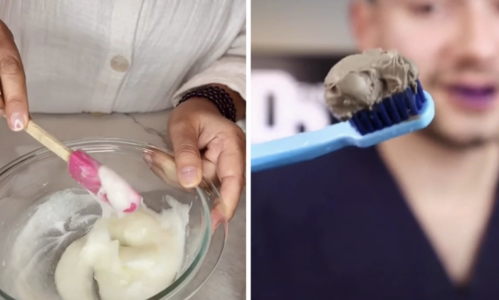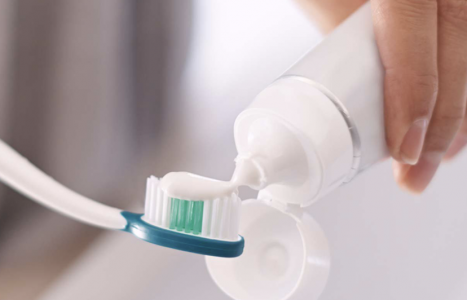Could 'homemade toothpaste' be putting your health at risk?
- Replies 5
One trend that's been taking the internet by storm as of late is homemade toothpaste.
Apparently, there are a whole lot of people out there who are interested in avoiding fluoride and other chemicals often found in regular toothpaste, instead opting for more natural ingredients like lemon, baking soda, salt, and charcoal.
But while this may sound like a good idea, in theory, dentists are warning health-conscious Australians that this trend could be bad for their teeth – and their overall health.
According to Bupa's Head Dentist, Cathryn Madden, just because these alternative ingredients are natural doesn't mean they're good for your teeth. They could actually cause more harm than good.

Dr Madden explains that these natural alternatives also have their drawbacks:
'Once your enamel is gone, you don't get it back,' she warned.
So, what's the best way to brush your teeth and avoid all of these potential problems?
Even though there are more and more dental care products on the market that don't contain fluoride, Dr Madden said to stick with a commercial toothpaste that does.
'Fluoride prevents issues with your teeth from turning into a cavity or a hole,' she said, adding: 'If you're following the advice that the dentists are giving you, you will be fine.'

She also advised people not to take the advice of social media posts that make unfounded claims about fluoride and oral cleanliness but rather to seek the advice of a dental professional when looking for a suitable product.
'There are decades worth of good scientific evidence showing that fluoride is safe and is effective in the prevention of tooth decay,' she said.

We hope this helps, members! Even though switching to natural ingredients may make us feel as though we are doing our bodies a favour, it also helps to first speak with experts.
Apparently, there are a whole lot of people out there who are interested in avoiding fluoride and other chemicals often found in regular toothpaste, instead opting for more natural ingredients like lemon, baking soda, salt, and charcoal.
But while this may sound like a good idea, in theory, dentists are warning health-conscious Australians that this trend could be bad for their teeth – and their overall health.
According to Bupa's Head Dentist, Cathryn Madden, just because these alternative ingredients are natural doesn't mean they're good for your teeth. They could actually cause more harm than good.

People are making their own natural toothpaste at home after seeing the trend on social media. Credit: TikTok.
Dr Madden explains that these natural alternatives also have their drawbacks:
- lemon is acidic
- baking soda and salt are abrasive
- hydrogen peroxide can cause burns to your gums and soft tissues
- vinegar can also cause damage
- and charcoal isn't regulated, so you don't really know what you're getting
'Once your enamel is gone, you don't get it back,' she warned.
So, what's the best way to brush your teeth and avoid all of these potential problems?
Even though there are more and more dental care products on the market that don't contain fluoride, Dr Madden said to stick with a commercial toothpaste that does.
'Fluoride prevents issues with your teeth from turning into a cavity or a hole,' she said, adding: 'If you're following the advice that the dentists are giving you, you will be fine.'

Fluoride is a non-toxic mineral that has been proven to lessen the risk of cavities and tooth decay. Credit: Healthy Options.
She also advised people not to take the advice of social media posts that make unfounded claims about fluoride and oral cleanliness but rather to seek the advice of a dental professional when looking for a suitable product.
'There are decades worth of good scientific evidence showing that fluoride is safe and is effective in the prevention of tooth decay,' she said.
Key Takeaways
- People are avoiding fluoride by using homemade toothpaste that they prepare themselves from ingredients such as lemon, baking soda, salt, and charcoal.
- Fluoride is added to toothpaste as well as drinking water for a good reason: it helps prevent tooth decay.
- When it comes to dental health, the dentist says that people should always listen to what the experts say.







